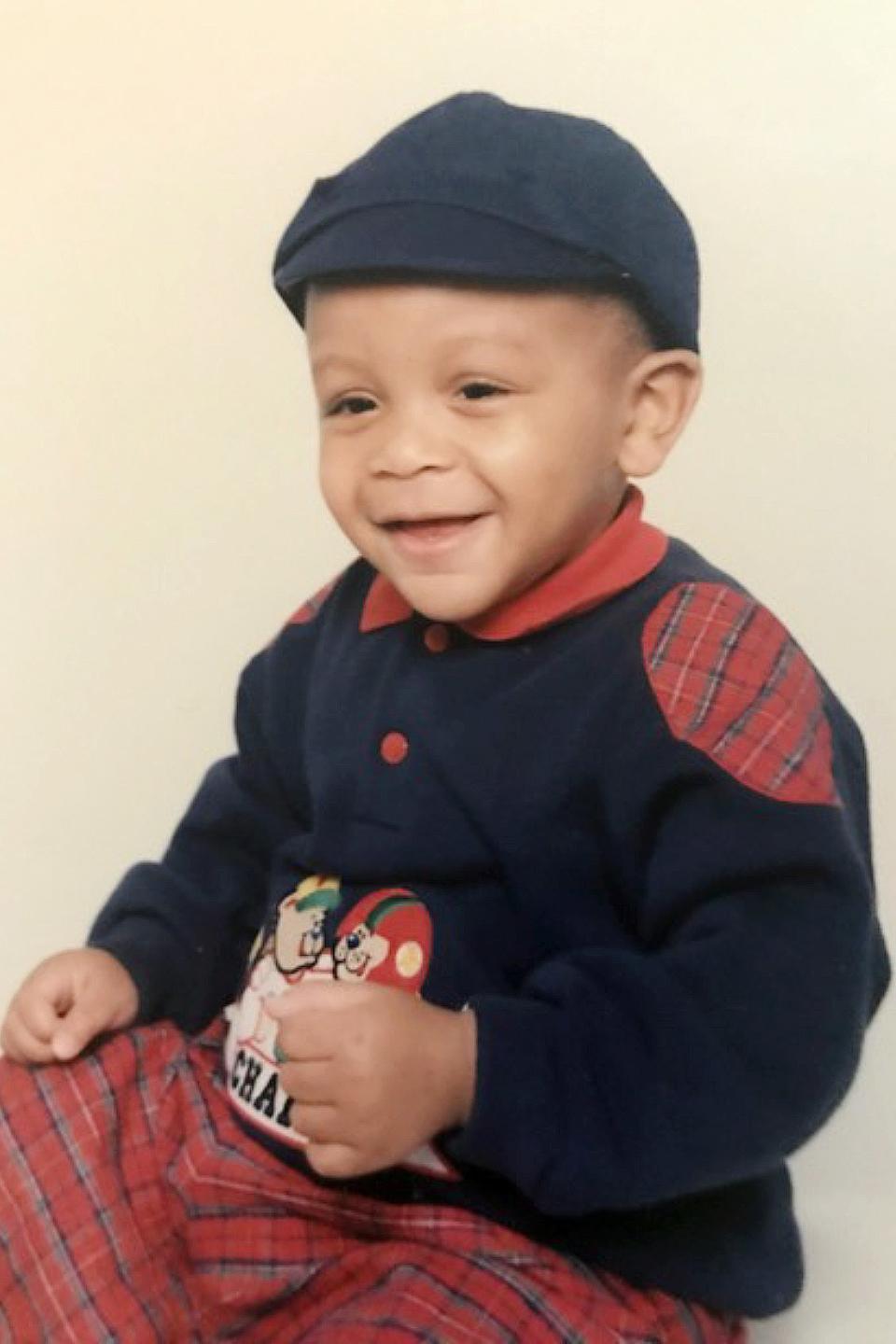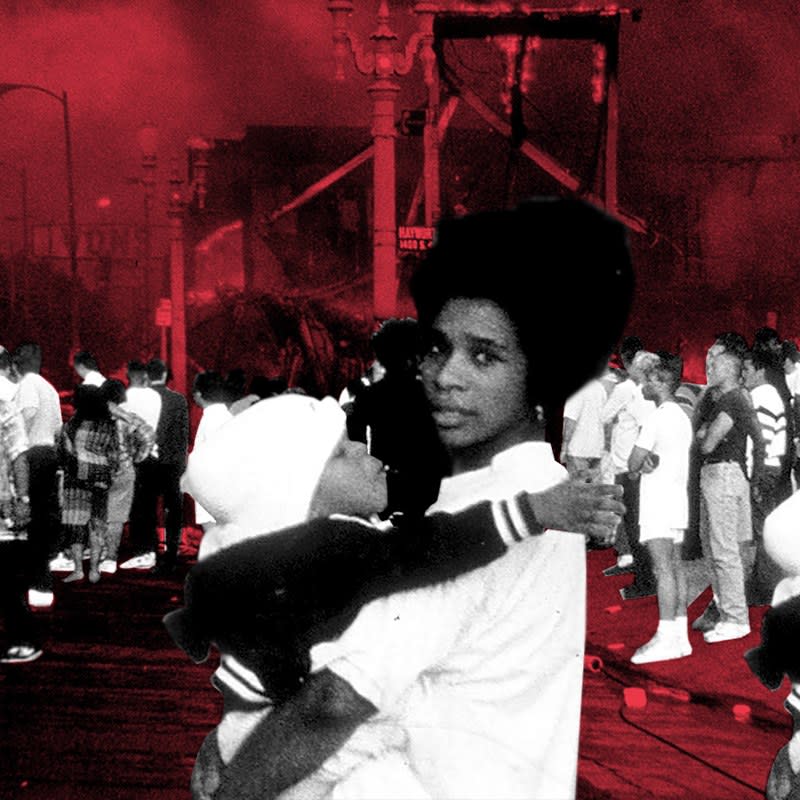Since Rodney King, Has Anything Really Changed for Black Men and the Women Who Raise Them?
In the spring of 1992, I was a new mother of a beautiful baby boy. His father and I were living in Detroit and happily struggling with 3 a.m. feedings and diaper changes. I obsessed over not being able to distinguish my baby's "feed me" cries from his "I'm wet" cries. In the midst of it all, Los Angeles went up in flames, a result of the nation's ongoing Achilles Heel of racism.
The Los Angeles riots erupted on April 29, 1992, shortly after four white police officers were acquitted in the 1991 beating of Rodney King, then a taxi driver. The act was caught on videotape by a resident in a nearby apartment, which presaged the era we live in today of police misconduct being captured on cell phones. The rioting lasted five days, despite dusk-to-dawn curfews, capturing national attention and outrage. On May 1, King appeared on television to himself make an appeal for calm, uttering his now-famous phrase: “Can we all just get along?” When it was over, more than 50 people were dead, 2,000 injured, and $1 billion worth of damaged or destroyed property was left among the smoldering embers.
The chaos in L.A. put motherhood in a new, jarring perspective for me. While sitting in a rocking chair feeding my six-day-old baby, it hit me like a punch to the gut: In a decade or two, my fragile and lovable boy would be seen as someone to be feared. This was a lot to take in concert with the new-motherhood hormones, so I sat down and wrote a letter to my son.
I read somewhere that raising a young black man to the age of 25 was nothing short of a miracle given the constant bloody bombardment of guns, drugs, and other violence. Well, my son Adrien turned 26 this week, just as we mark the 26th anniversary of the L.A. riots.
Looking at the state of things in America today, I’m hard-pressed to find what has changed. We continue to endure unprovoked shootings of young black teenagers and men, each one tragically illustrating how difficult it continues to be to raise a black boy to manhood. In fact, black children are four times more likely than white children to be killed by guns, according to a report by The Center of Disease Control and Prevention.
Raising a child today is already tough enough, but factor in race and discrimination and the task is daunting. It's a feeling and experience white people will never have to know.
As young people continue raising their voices in protest of gun violence and to bring awareness to Black Lives Matter, the letter I wrote to my son then, as a brand-new mom, is still as fresh and vital today. For his birthday, and to not let this tarnishing mark on America’s history go unacknowledged, I’m sharing it here today. Someday, I hope mothers like me will have no reason to raise their children in fear.
Dear Adrien,
Welcome to the world.
Hopefully, by the time you're able to read this, the world will be a much different, more accepting place for black men. But as I write this, I'm not so sure. How do I tell you about the facts of life? I'm not talking about sex. That should be an easy job compared to telling you about racism, about being different and being continually judged and held to a different standard because of that difference.
Looking at you asleep in your crib, tiny smiles running across your face, the world as you know it is contained in a six-ounce serving of formula. When I think about what's ahead for you as a young black man in America and what your father and I must do to prepare you, all other parental duties seem minor, particularly in the wake of some disturbing events.
Less than a week after you were born, an all-white jury in California acquitted four white policemen of savagely beating a black man, even though the violence was captured on videotape. The rest of the world was horrified but not those 12 people. Somehow, to them, a prone black man was more menacing than a half-dozen armed cops. Clearing those policemen sent a harsh message: Black life means nothing in this country. When the verdict came down, I was in the middle of feeding you, looking into your eyes and trying to imagine what the future holds for you. Up until then, I had been struggling with my new role as a mother, worrying incessantly if I was feeding you enough and whether I would ever learn to distinguish your various cries. The Rodney King verdict changed all that.
Instead of feeling apprehensive, I'm angry. Raising a child today is already tough enough, but factor in race and discrimination and the task is daunting. It's a feeling and experience white people will never have to know. Instead of fretting over skinned knees, I wonder how I will console you the first time you're called a nigger. And instead of worrying about you staying out late at night as a teenager, it will be wondering if you will make it home at all. If the current police brutality against black men continues, my fear may not be unfounded.
I remember when your uncle, my youngest brother, was repeatedly harassed by cops as a teenager. He never drank or touched drugs, but police would tail him while he was driving and force him to pull over, get out of his car, and walk a straight line to prove he was sober. Every young black man I know has a similar story of being on the street or in a car or in a store and being harassed for no reason. They're always suspect. Always on guard. Your uncle doesn't talk much about his encounters with the police but I sense the hidden anger and hurt in him. I see it when he talks about problems at his job, watching his white co-workers get promotions faster, despite him working twice as hard.

IMG_2255.jpg
It angers me to know that for all the education and degrees you can get, you could be sized up and discounted simply because of someone's ignorance and hatred. Every day of your life you will be bombarded by messages of inferiority and negative images of black men on television and in newspapers and magazines. I'm angry that I have to prepare you for that.
I'm also hopeful and happy that you are here. Your generation has a lot to face. It also has a lot of opportunities. You have the chance to redefine manhood for all men. Not just black men. Shape it into something more meaningful and productive than the images we see on television and in the newspapers. Make your time here on earth count. You're part of a long and rich legacy that includes hundreds of nameless strong black men who never gave up, in spite of it all. Please don't misunderstand my anger and fear. They are rooted in wanting to protect you. I entrust you to God's care and will be here to offer encouragement and two waiting arms, which hold you now as I feed you and look forward to holding you whenever you need an extra hug to go on.
An update from Atlanta in 2018
Rodney King is dead, the victim of a drowning accident in 2012. Black Lives Matter is a movement. And you marked your 26th birthday this week, living and working in Los Angeles. Ironic? No, but it is nothing short of a miracle.


